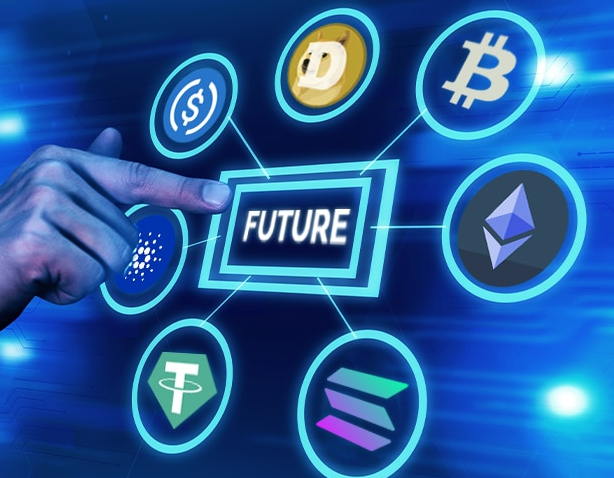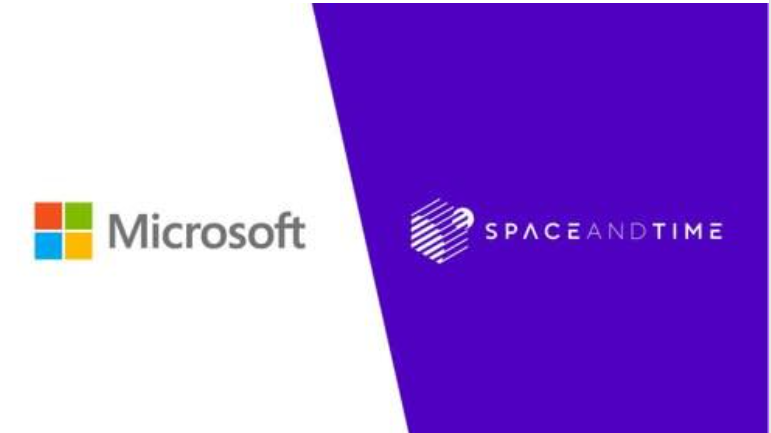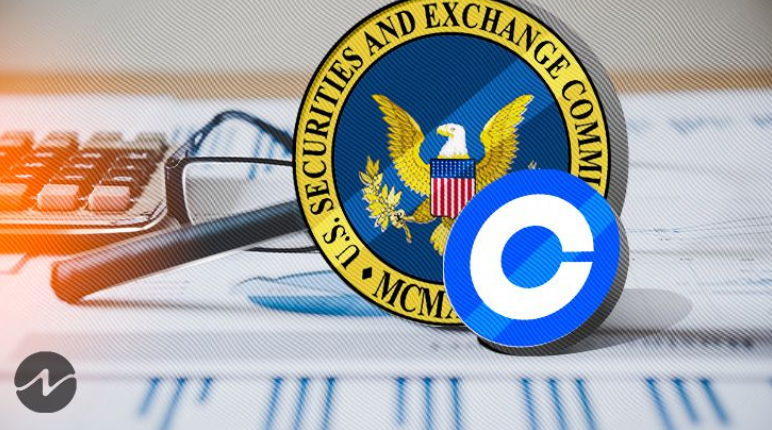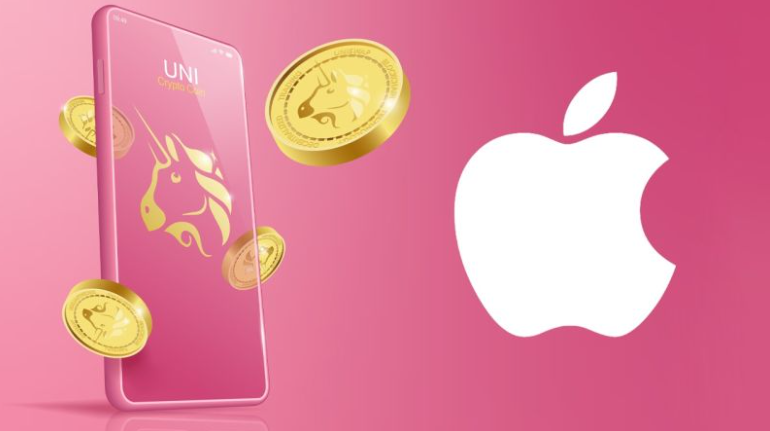
Subscribe to the CryptoWeekly Newsletter
Get the top stories, funding deals, technical analysis, cryptocurrency jobs and much more delivered to your inbox, every Monday morning.

April 23,2023
Landmark Win For Web3 As Yuga Labs Obtains Victory In Copyright Case
Yuga Labs, the maker of the well-known BAYC (Bored Ape Yacht Club) NFT collection, has declared legal victory in its trademark infringement case against Ryder Ripps and Jeremy Cahen. This development is being described as a significant win for the entire Web3 industry, rather than just a victory for Yuga Labs.
In a pre-trial summary judgment, a federal judge ruled that Yuga Labs is entitled to an injunction and damages from the duo. Yuga Labs took legal action against Ryder Ripps and his associate in June 2022, filing a trademark infringement lawsuit.
According to the allegations, they misled buyers by selling NFTs which were fraudulently equivalent to the BAYC collection under the pretense of humor, and they also harmed the credibility of the NFT collection with their allegations.
The United States District Court for the Northern District of California initially determined that Yuga Labs is the legitimate and enforceable owner of the BAYC trademarks. It was also discovered that Ryder Ripps and Jeremy Cahen used these trademarks without permission, potentially confusing potential buyers looking to purchase an authentic Bored Ape NFT.
Although the court stated unequivocally that Yuga Labs is entitled to monetary damages and injunctive relief, it nevertheless denied the motion put forth by the BAYC creators to determine damages in their case.
The issue of damages will therefore be decided during the trial, according to the court. Originally, Yuga Labs initially sought $200,000 in statutory damages, but the presiding judge denied this request.

April 23,2023
The Basics of Cryptocurrency: An Introduction to Bitcoin and Other Digital Currencies
In recent years, the world of finance has been dramatically disrupted by the emergence of cryptocurrencies. These digital funds have fundamentally changed how we think about money, investment, and global transactions. In this article, we will delve into the basics of cryptocurrency, introducing Bitcoin and other prominent digital currencies and exploring the underlying technology that powers them.
What is Cryptocurrency?
A cryptocurrency is a digital or virtual currency that utilizes cryptography to secure transactions, control the creation of new units, and verify the transfer of assets. Unlike traditional currencies, cryptos operate on a decentralized network of computers, allowing for greater autonomy, transparency, and security.
The Birth of Bitcoin: The Pioneer of Cryptocurrency
Bitcoin, created in 2009 by an individual or group using Satoshi Nakamotos pseudonym, is the first and most well-known cryptocurrency. It was designed to solve the problem of double-spending in digital transactions, an issue that plagued earlier attempts at creating digital currencies. By leveraging a groundbreaking technology known as the blockchain, Bitcoin enables secure, transparent, and efficient transactions without a central authority.
Blockchain Technology: The Backbone of Cryptocurrency
At the core of cryptocurrencies is blockchain technology, a digital ledger that records transactions across a decentralized network of computers. Each transaction is grouped with others into a "block," which is then added to the "chain" of previously verified blocks. This process creates a transparent and tamper-proof record of all transactions, ensuring integrity and security.
The World of Cryptocurrencies: Beyond Bitcoin
While Bitcoin is the most famous cryptocurrency, thousands of digital currencies are now available, each with unique features and applications. Some of the most notable cryptocurrencies include:
- Ethereum: Launched in 2015, Ethereum is a platform that enables developers to create decentralized applications (dApps) using smart contracts (self-executing protocols with the terms directly written into code). Ether (ETH) is the native currency of the Ethereum network and is used to facilitate transactions and pay for computational services.
- Ripple (XRP): Ripple is a real-time gross settlement system, currency exchange, and remittance network facilitating fast and low-cost international transactions. XRP is the native digital asset of the Ripple network and is used as a bridge currency for cross-border payments.
- Litecoin (LTC): Created in 2011 as an alternative to Bitcoin, Litecoin offers faster transaction confirmation times and a more efficient mining process. Litecoin aims to provide a more scalable and accessible cryptocurrency for everyday use.
Cryptocurrency Mining: The Process of Creating New Coins
Cryptocurrency mining is validating transactions and adding new blocks to the blockchain. Miners use powerful computers to solve complex mathematical problems that validate transactions. Once a problem is solved, a new block is added to the blockchain, and the miner is rewarded with a certain amount of cryptocurrency. This process maintains the blockchain&s security and integrity while creating new coins.
Investing in Cryptocurrencies: Risks and Rewards
Investing in cryptocurrencies has become increasingly popular as more people recognize the potential for high returns. However, its essential to understand the risks involved, as the cryptocurrency market is known for its volatility. Before investing, conducting thorough research, diversifying your portfolio, and only spend what you can afford to lose is crucial.
The Future of Cryptocurrencies: Challenges and Opportunities
As crypto and blockchain continue to gain traction, they face various challenges, including regulatory scrutiny, scalability, and energy consumption. However, they also present significant opportunities for innovation, financial inclusion, and new applications and services development. This section will explore some of the challenges and opportunities for the world of cryptocurrencies.
Regulatory Challenges: Navigating the Legal Landscape
As the adoption of cryptocurrencies increases, so does the attention from regulatory bodies. Governments worldwide are grappling with creating a legal framework that balances innovation, security, and consumer protection. While some countries have embraced cryptocurrencies and implemented favorable regulations, others have taken a more cautious or hostile approach, imposing strict restrictions or outright bans. A harmonized global regulatory landscape is essential for cryptocurrencies to thrive, allowing for seamless cross-border transactions and fostering innovation.
Scalability: Addressing the Growing Demand
As more people and businesses adopt cryptocurrencies, networks must be able to handle increased transaction volumes. Scalability has been a persistent issue for popular cryptocurrencies like Bitcoin and Ethereum, leading to slow transaction times and higher fees during periods of high demand. The development of new technologies, such as sharding, sidechains, and the Lightning Network, aims to address these challenges and improve cryptocurrencies overall efficiency and usability.
Environmental Concerns: The Energy Cost of Cryptocurrency Mining
The energy-intensive nature of cryptocurrency mining, particularly for proof-of-work (PoW) based currencies like Bitcoin, has raised environmental concerns. To address this issue, some cryptocurrencies have adopted alternative consensus mechanisms, such as proof-of-stake (PoS), which require significantly less energy. Additionally, the industry is exploring renewable energy sources to power mining operations, reducing the overall carbon footprint.
Financial Inclusion and Empowerment: Democratizing Access to Financial Services
One of the most promising aspects of cryptocurrencies is their potential to promote financial inclusion. An estimated 1.7 billion people worldwide lack access to formal financial services, often due to the high costs and barriers associated with traditional banking. Cryptocurrencies, with their low transaction fees and accessibility through smartphones, present an opportunity to provide these individuals with access to financial services, empowering them to participate in the global economy.
Innovations in Decentralized Finance (DeFi) and Non-Fungible Tokens (NFTs)
Cryptocurrencies have also given birth to new financial applications and services. Decentralized finance (DeFi) platforms, built on blockchain technology, offer various financial services, including lending, borrowing, and asset management, without intermediaries. Non-fungible tokens (NFTs) have opened new avenues for digital art and collectibles, allowing artists and creators to monetize their work while maintaining ownership and control.
In conclusion, cryptocurrencies have come a long way since the inception of Bitcoin in 2009. As we navigate the challenges and capitalize on the opportunities, the world of digital currencies continues to evolve, presenting new possibilities for innovation, investment, and financial empowerment.

April 22,2023
Users Can Now Purchase, Withdraw, And Exchange BTC Via Telegram Wallet
Users of the popular Telegram messaging app can now purchase, withdraw, and exchange Bitcoin (BTC). It is worth noting, however, that the Wallet bot and its associated services, which enable these functions, were developed by a third party rather than Telegram itself.
Third-party developers use the open bot API of Telegram to create the Wallet bot and similar services. This means that anyone can utilize the API to create their own cryptocurrency-related bot, with no involvement from Telegram.
According to the latest announcement from the @wallet account on April 21st, users of the web interface now have the ability to buy, withdraw, exchange, and make P2P transactions in Bitcoin directly through the web interface. This move expands on the existing cryptocurrency-related services which are already popular within Telegram.
As cryptocurrencies gain popularity and adoption, it will be intriguing to see how Telegram as well as other third-party industry players continue to develop and modify their products to meet the evolving requirements and demands of users all over the world.

April 20,2023
Space And Time Announces Groundbreaking Partnership With Microsoft
The first ever decentralized Web 3.0 data warehouse, Space and Time, has announced that it will be making real-time blockchain data accessible to deployers directly from the online store Azure Marketplace by partnering with the technology behemoth Microsoft.
Specifically, Space and Time announced its collaboration with Microsoft via a Twitter post that stated Space and Time is now available to deploy with a single click through the Azure marketplace:
Notably, the cloud services as well as other extensive resources provided by Azure marketplace could improve the decentralized data warehouse without disrupting the current infrastructure, enabling businesses to easily access it. Essentially, the integration would make developing Web3 applications and blockchain facilities more streamlined.
Kathleen Mitford, CVP of Global Industry Marketing at Microsoft, commented on the benefits of the partnership, saying that at Microsoft, the goal is to empower growth across emerging markets, including blockchain and distributed data. Microsoft Azure and Space and Time will hence collaborate to give developers the tools they need to create the next generation of blockchain use cases.
Nate Holiday, CEO of Space and Time, discussed the current importance of verifiable data across blockchains, enterprises, and AI, claiming that the ability to incorporate blockchain data into various applications and business processes is vital for customer growth and enabling responsible data stewards.
Furthermore, Holiday stated that the collaboration with Microsoft makes a lot of sense and that Azure support adds a lot of value to the company going forward.

April 19,2023
Coinbase May Leave The U.S. As Legal Battle With The SEC Continues
According to CEO Brian Armstrong, Coinbase is on the verge of a lengthy legal battle with the Securities and Exchange Commission (SEC) over how federal securities laws apply to the crypto industry. If the regulator situation does not improve, the executive stated that the exchange will consider relocating outside of the United States.
Armstrong chastised certain regulators for taking a regulation by enforcement approach to crypto in the U.S., a phrase he has often previously used. Given this aggressive approach by the SEC, he admitted that Coinbase was already evaluating other countries for potential new headquarters locations.
The United Kingdom is actually a very good option, the CEO explained. He mentioned that the region is the second-highest revenue country for Coinbase, and that its leaders have expressed a strong desire to turn the country into a Web3 hub.
The SEC has targeted Coinbase in particular, issuing the firm a Wells Notice earlier this month. It claimed that Coinbase had violated federal securities laws, which Armstrong believes are related to the assets the exchange possesses as well as its staking as a service product.
The CEO mentioned that the SEC had never informed the exchange about what it could be doing better to remain compliant over the last year, despite the fact that the exchange had attended over 30 meetings. He stated that Coinbase will most likely have to go to court to obtain much-needed clarity and create the case law, referring to judicial precedent.

April 16,2023
Uniswap Labs Obtains A Spot In The App Store For Their Wallet App.
The Uniswap Wallet iOS app is now available for Apple users in the United States and a few other countries, according to announcement last Tuesday.
Uniswap Labs has additionally made the code of the app publicly available on GitHub. With over $4.2 billion in total value locked, Uniswap is also the most popular Ethereum DeFi protocol.
Users of the Uniswap Wallet can trade crypto assets on the Ethereum mainnet alongside Arbitrum, Optimism, and Polygon. It also allows users to buy cryptocurrencies, view NFT details but not trade them, choose favorite tokens as well as wallet addresses, and more.
Uniswap released the wallet to 10,000 early-access users last month via a testing platform known as Apple TestFlight. In March, Uniswap stated that it had no idea why Apple had previously refused to approve the launch of the application on the Apple Store.
Nevertheless, that barrier to launch has apparently been overcome for users in the United States, the United Kingdom, and France, but it remains unclear as to whether or not Apple shall approve the application for use in various other regions.
Lastly, the mobile wallet will have to compete for user attention with other heavyweights such as Coinbase Wallet and MetaMask, among others.

April 16,2023
Shapella Upgrade Finally Completed As Ethereum Advances To Next Stage
The Shanghai hard fork of Ethereum (ETH), also known as Shapella, has been completed, allowing users who have staked their ETH to secure and validate transactions on the blockchain to withdraw. The update began at 22:27 UTC and ended around 22:42 UTC. According to beaconcha.in, approximately 30 minutes after the upgrade was activated, 285 withdrawals in epoch 194,408 were processed, totaling approximately 5,413 ETH.
Additionally, while the main focus of Shanghai is staked ETH withdrawals, there are four less strenuous aspects called Ethereum Improvement Proposals (EIPs) which will supposedly improve gas fees for developers. These are EIP-3651, EIP-3855, EIP-3860, and EIP-6049.
What happened?
Members of the Ethereum community have described the much-anticipated hard fork as a historic milestone, as it signifies the completion of the multi-year transition to a Proof-of-Stake (PoS) network.
Users stake cryptocurrency in a PoS system as a kind of guarantee to help confirm and secure new data blocks. The blockchain abandoned its original Proof-of-Work (PoW) consensus mechanism, the same one used by Bitcoin (BTC), last year, but users have been unable to withdraw staked ETH or redeem accrued rewards, a critical component of the new paradigm.
Furthermore, validators can unstake in a variety of ways, with the two most common being partial and full withdrawals. Staking services also have their own schedules for releasing staked ETH withdrawals.
Coinbase previously stated that they would begin processing withdrawal requests for their stakeholders approximately 24 hours after Shanghai is completed. Meanwhile, it was reported that stakeholders will not be able to retrieve their withdrawals until the protocol is upgraded again in May, according to Lido.
What comes next?
Ethereum Co-Founder, Vitalik Buterin, stated that we have now arrived at a stage where the quickest and most difficult parts concerning the transition of the Ethereum protocol are essentially over. He went on to say that although there are still important steps which must be completed, they can be finished safely at a slower pace.
He also stated that after Shanghai, the blockchain will address scaling (the act of making transactions faster and cheaper). If Ethereum developers do not address scaling issues before the next bull run, Vitalik believes that users will be forced to pay $500 transactions. If Ethereum does not have Verkle Trees before the next bull run, the situation may also become problematic, even if it is a much smaller issue than hefty transaction fees. Regardless, the upgrade is certainly a game-changer and has already led to a significant increase in ETH's price.

April 13,2023
Paxos Will Cease Operations In Canada On June 2nd
Paxos, the creator of the BUSD stablecoin, intends to close its Canadian operations on June 2nd, 2023. Though the announcement on its website does not mention regulatory hurdles as a reason for exit, the platform joins the ranks of OKX and dYdX, which recently announced that they would cease operations in Canada due to more stringent crypto regulations.
Recently, Paxos advised clients to withdraw their funds as soon as possible because user accounts shall be disabled within the first week of June. The platform will reportedly prohibit Canadian users from initiating any trades after the deadline, but those who have balances on Paxos would be able to access and withdraw funds with longer wait times after the deadline.
It was announced that accounts with zero balances shall be automatically closed on May 9th, but claimed that user funds would be safe and that the balances on the accounts would be reflected in accordance with the corresponding terms and conditions.
The FTX and Terra disasters compelled financial regulators around the world to restructure their regulatory policies in order to protect investors. On February 22nd, the CSA (Canadian Securities Administrators) issued a notice requiring all cryptocurrency platforms to sign new legally binding agreements if they wanted to continue operating within the country.

April 12,2023
Twitter No Longer Exists As The Everything App Gets Underway
According to a document filed on April 4th in a California court for a lawsuit filed against the social media giant and its former CEO, Jack Dorsey, last year by conservative activist Laura Loomer, Twitter reportedly no longer exists after being merged with X Corp.
Its uncertain what the development means for Twitter, which has undergone major changes since Musk purchased the company for $44 billion last year. Most recently, the Twitter icon was replaced by the Dogecoin logo before eventually being switched back.
The Tesla CEO has previously stated that acquiring Twitter would be an accelerator for the development of X, which he has dubbed as an everything app.
Elon has expressed a desire for X to function similarly to the popular Chinese application WeChat, a super-app owned by Tencent Holdings Ltd that is used for a variety of purposes like payments, messaging, and event ticket booking.
However, he has not clarified how X will fit into his vast business empire, which includes Tesla Inc and Space Exploration Technologies Corp. Musk also owns the domain X.com, which is the name of the online payments company he founded and later sold to PayPal.

April 09,2023
Can Bankings Bust Be Cryptos Boom - In Times Of Uncertainty, What Happens In Crypto
There are big changes ahead in the financial world as markets begin to deal with the challenges of consistent inflation, economic depression, and the instability and uncertainty they cause. Could these challenges create an advantage for cryptocurrencies? Lets find out.
Crypto As A Commodity
In times of financial uncertainty, many investors will switch strategies and start turning to historically valuable commodities to protect their funds. During the credit crunch of 2008 the price of gold spiked significantly as people moved their wealth from stock and currency investments into precious metals. Silver also increased in value. When times get tough, the tough get going, and they go to the commodities markets.
You can keep up to date with the latest spot price for gold with TradingViews XAUUSD live chart and use it to get an indication of a change in the global financial marketplace. Their online community also engages in lots of discussions and information on trading that can you can use to get a clearer picture of the markets. Since 2008, cryptocurrencies have emerged as another refuge when markets crash or outlooks become dire.
With markets looking increasingly unsettled, and many major banks struggling to limit their exposure to the effects of global inflation, premium cryptocurrencies like Bitcoin and Ethereum could see spikes in value too as the demand for the coins grows while investors look for stable places to store their wealth.
The Crypto Crunch
Though the instability of many traditional financial institutions could be a boon for cryptocurrencies, it will also present some challenges. As these digital currencies have pushed for legitimacy with financial investors they have had to enmesh themselves with banks and financial service providers that are exposed to downturns in the global economy.
This will put pressure on crypto exchanges and businesses with a focus on cryptocurrency as they will struggle to interact with a US Dollar-based financial system and exchange digital currency for physical currency and vice versa. This is best outlined by the shutdown of Signature Bank in early 2023, as many crypto exchanges and companies used the bank for financial services. This affected the crypto markets initially, though they did recover when businesses found other banks and financial institutions to work with.
The Push For Regulation
Cryptocurrencys biggest asset is also its biggest liability. The majority of the crypto space is completely unregulated, which has led to scams and controversies that have dogged cryptocurrency since its inception. As digital currencies have increased their influence and become more legitimate, the effect that they can have on markets and non-crypto investments has created new calls for increased regulation.
This is a double-edged sword for crypto fans. On the one hand, they seek legitimacy in the financial industry. On the other hand, crypto fans enjoy the lack of regulation or governmental oversight. For the currency to truly mature and reach its potential, regulation is going to have to play a part. For crypto to boom in the face of banking's bust, investors will need to be able to rely on regulations to protect their wealth.
Crypto certainly seems like a good hedge against drops in value in the traditional financial markets and could provide a safe haven for investors in times of economic uncertainty. The space is aching for extra regulation, however, and without it cryptocurrencies will always come with an added risk.

April 09,2023
SushiSwap Gets Hacked As All Chains May Be Revoked
SushiSwap, one of the most popular decentralized exchanges in the world, recently fell victim to an exploit resulting in the loss of at least $3 million.
The hacker took advantage of an approve-related bug in the RouterProcessor2 contract, which both PeckShield and SushiSwap advise revoking on all chains as soon as possible.
A bug reportedly allowed an unauthorized entity to steal tokens without anyone finding out. Following the initial attack for 100 ETH, which appeared to be a white hat, it was soon reported that another hacker came along and stole approximately 1,800 ETH by using the same exact contract with a different name.
According to DeFi Llama, only those who swapped on SushiSwap in the last four days would be affected. They additionally published a list of contracts which will be revoked across all chains and also created a tool to check if any addresses have been affected.
So far, the problematic contract has been approved by 190 Ethereum addresses. The main issue, however, is that over 2000 addresses on Layer 2 Arbitrum appear to have approved the bad contract.

April 09,2023
Here Is How AI Technology Is Changing Fintech For The Better
AI technology is rapidly transforming the financial industry, especially in terms of revolutionizing how banks, investors, and financial institutions all operate. Given the rising significance of emerging technologies like the metaverse, NFTs, blockchain, and more, it really should not come as any surprise that this is happening. Put simply, AI can assist financial institutions in increasing efficiency, lowering costs, and providing better service to their customers.
How can AI help?
AI algorithms can examine transactions in real time, identify abnormal patterns which could indicate fraudulent activity, and notify banks so that appropriate action can be taken. For instance, PayPal has a fraud detection system that utilizes AI. PayPal monitors real-time transactions and detects potentially fraudulent activity using machine learning algorithms and rule-based systems. The number of fraudulent transactions on the network has significantly decreased as a result of this AI-powered solution.
Another example is chatbots powered by artificial intelligence that can provide customized financial advice, answer customer questions, and optimize routine tasks such as updating customer information and opening a new account. AI chatbots employ machine learning algorithms and natural language processing to provide consumers with tailored assistance and financial insights via a variety of channels such as SMS, WhatsApp, and more.
AI is also capable of accurately assessing past and present market trends, detecting patterns, and forecasting future prices. AI algorithms can perform real-time transactions based on pre-programmed rules and conditions, optimizing investment strategies and maximizing returns. This technology greatly benefits financial institutions and investors by allowing them to make decisions driven by empirical data which helps them maintain a competitive edge in the cut-throat world of trading.
How else can AI be useful?
AI can recognize possible risks and forecast future scenarios by analyzing complicated financial data, offering valuable insights which allow banks and other financial institutions to start making informed decisions. The Aladdin platform by BlackRock is a prime example of risk management using AI.
Moreover, AI can also analyze massive amounts of financial data to supply valuable insights into investment trends, risks, and opportunities. Wealthfront, a robo-advisor which utilizes AI algorithms to successfully manage investment portfolios for clients, is an example of this.
Additionally, credit histories, financial information, and other data can be analyzed by AI algorithms to provide accurate credit scores, thereby allowing lenders to make better decisions. Another useful aspect for AI in this industry would be the ability to provide precise insurance underwriting, as AI can analyze a variety of data points such as health records, driving history, criminal history, and demographic information.
Finally, by analyzing numerous transactions and fraudulent activities and ensuring compliance with various AML and KYC regulations, AI can assist financial institutions in complying with complex regulations. ComplyAdvantage, for example, assists businesses in meeting legal obligations and avoiding fines by monitoring financial transactions and identifying potential money laundering activities using AI and machine learning algorithms.
Needless to say, the world is changing thanks to the global implementation of AI technology and the scary yet exciting part is that this is just the beginning.